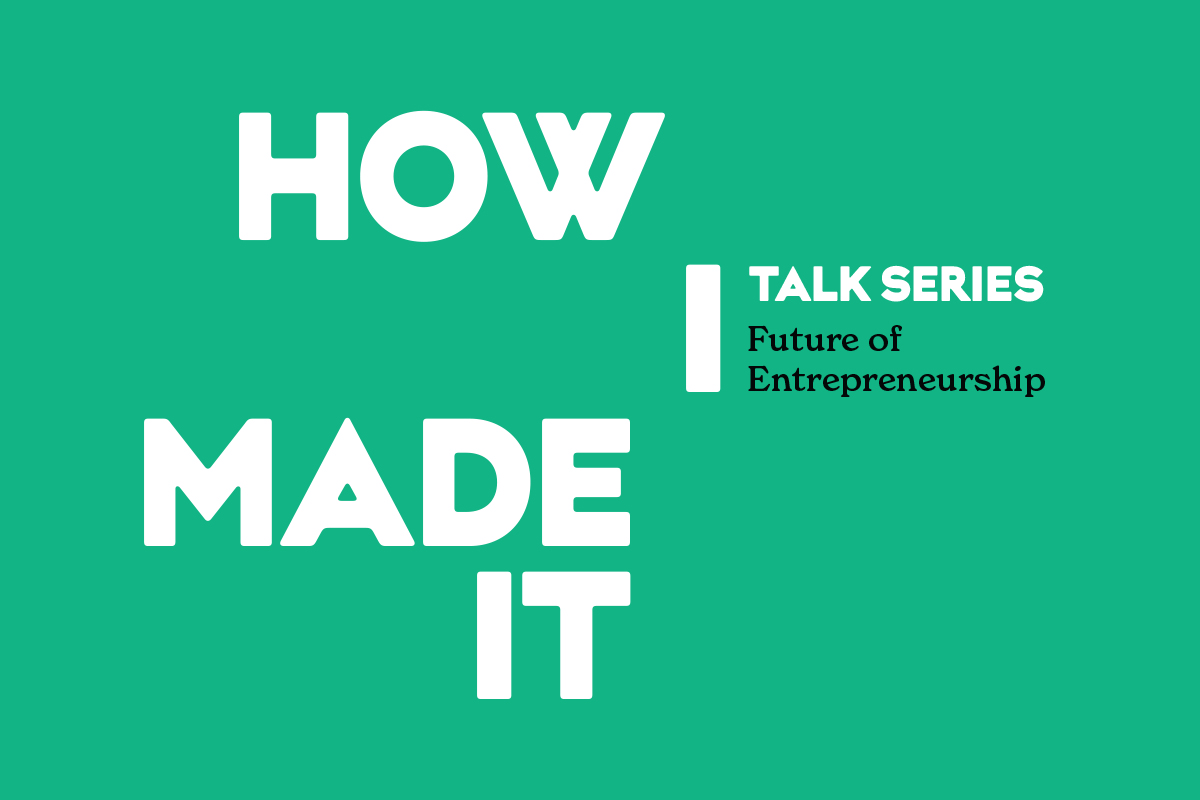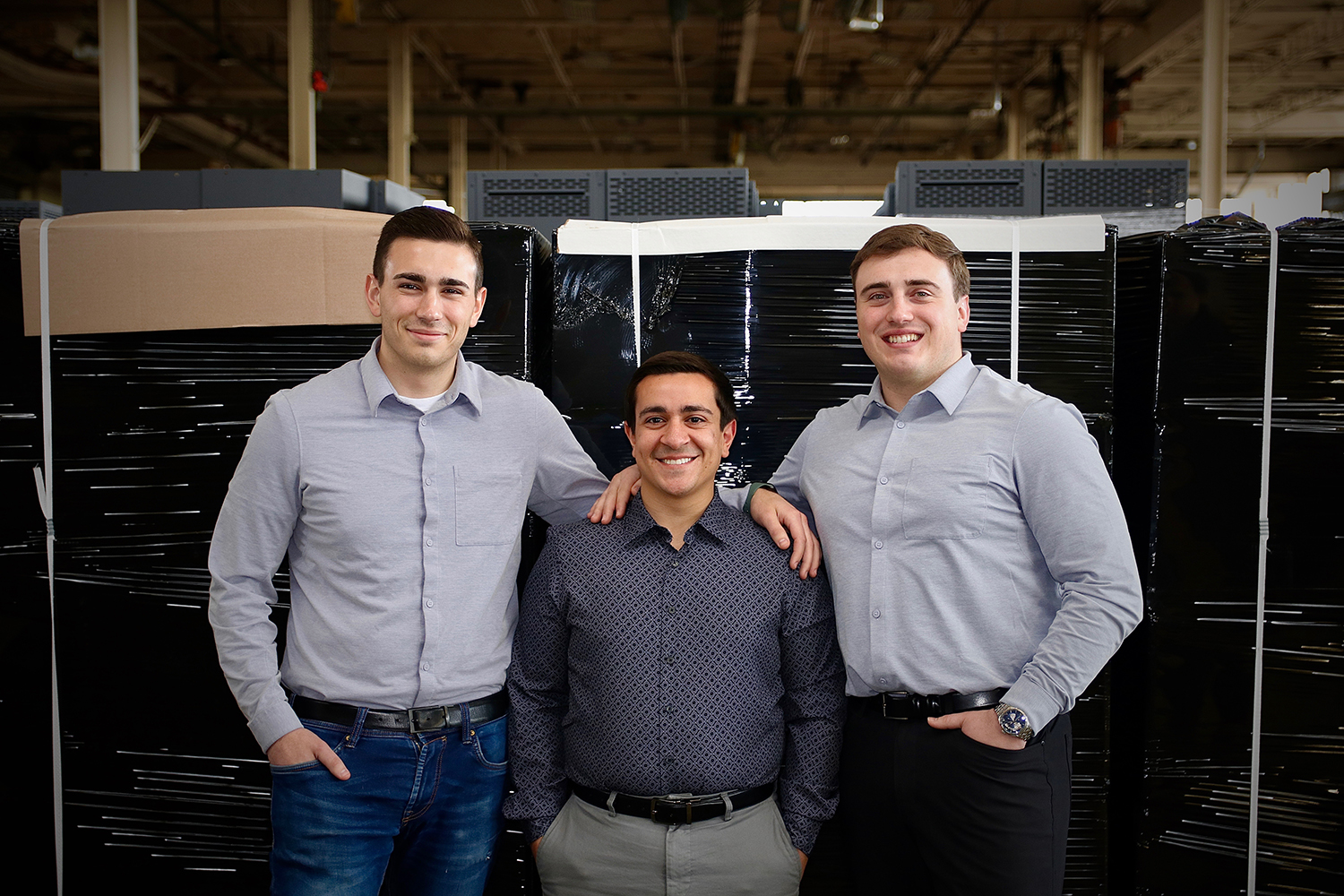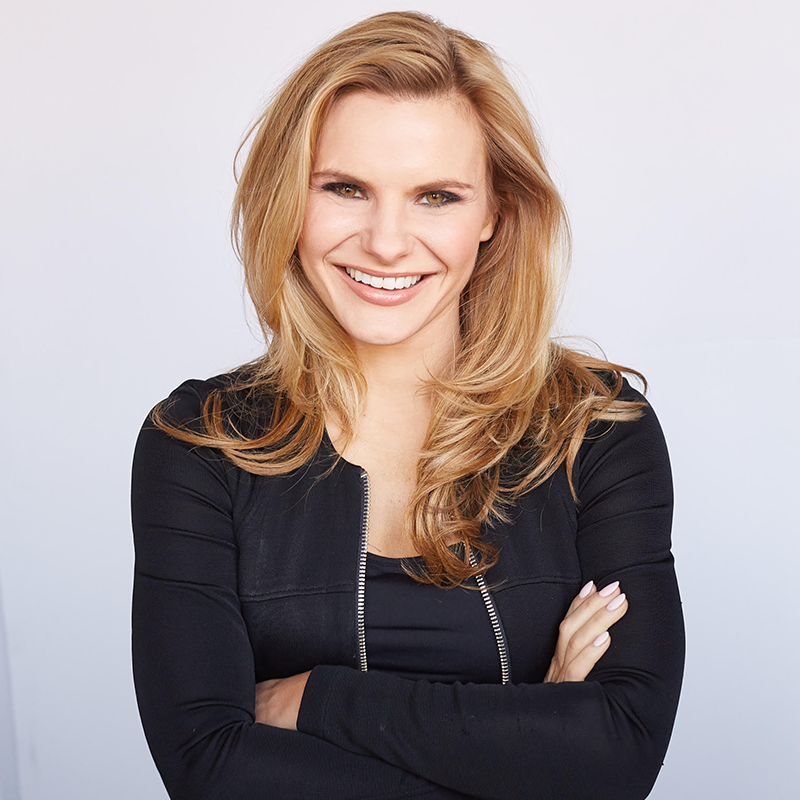15 Success Stories of Inspiring Canadian Entrepreneurs
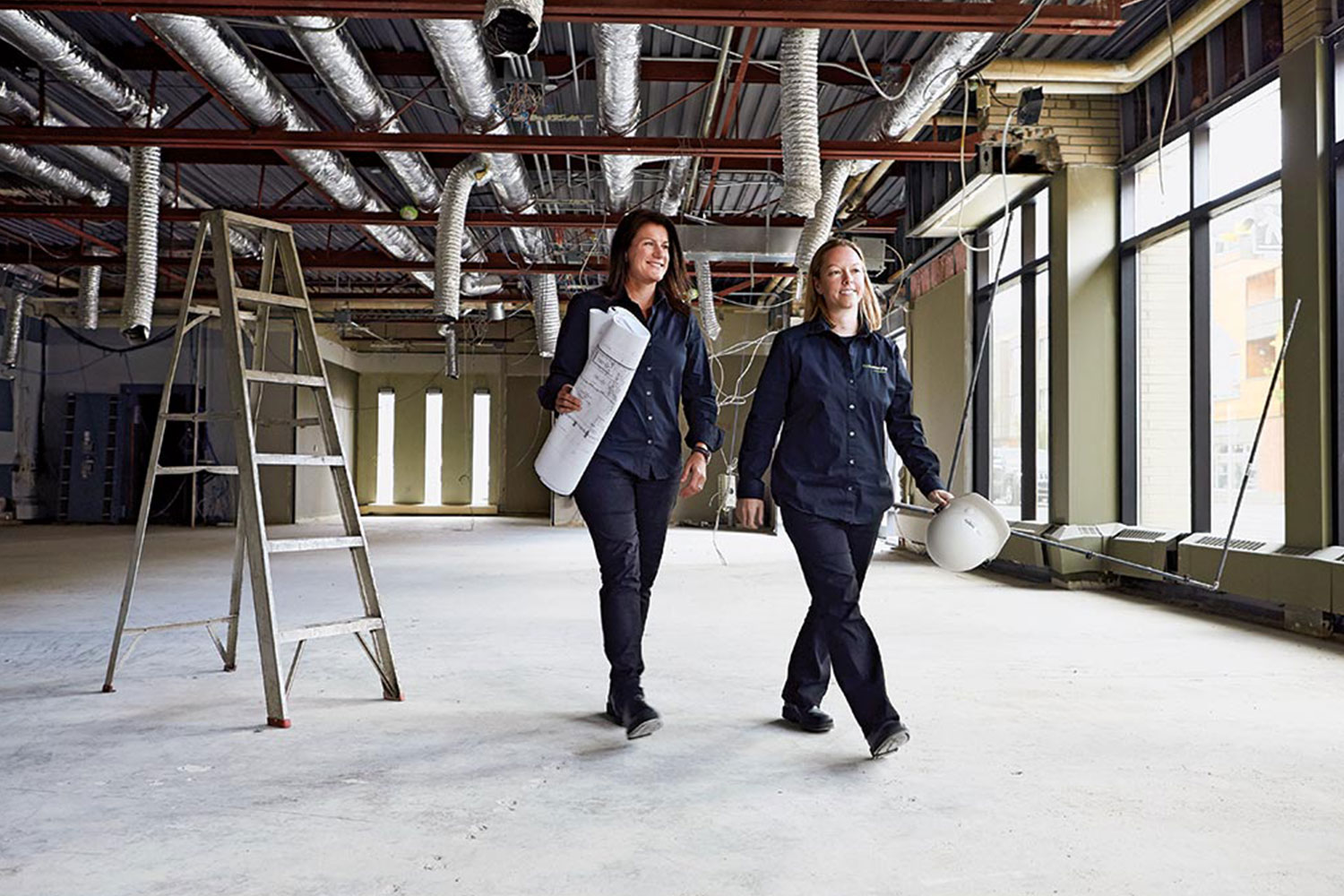
What does it take to be one of the top Canadian entrepreneurs? We spoke to some of the country’s brightest business leaders about how they’ve grown their companies, scaled their ideas and found success in their respective industries.
Here, innovative entrepreneurs share their business success stories.
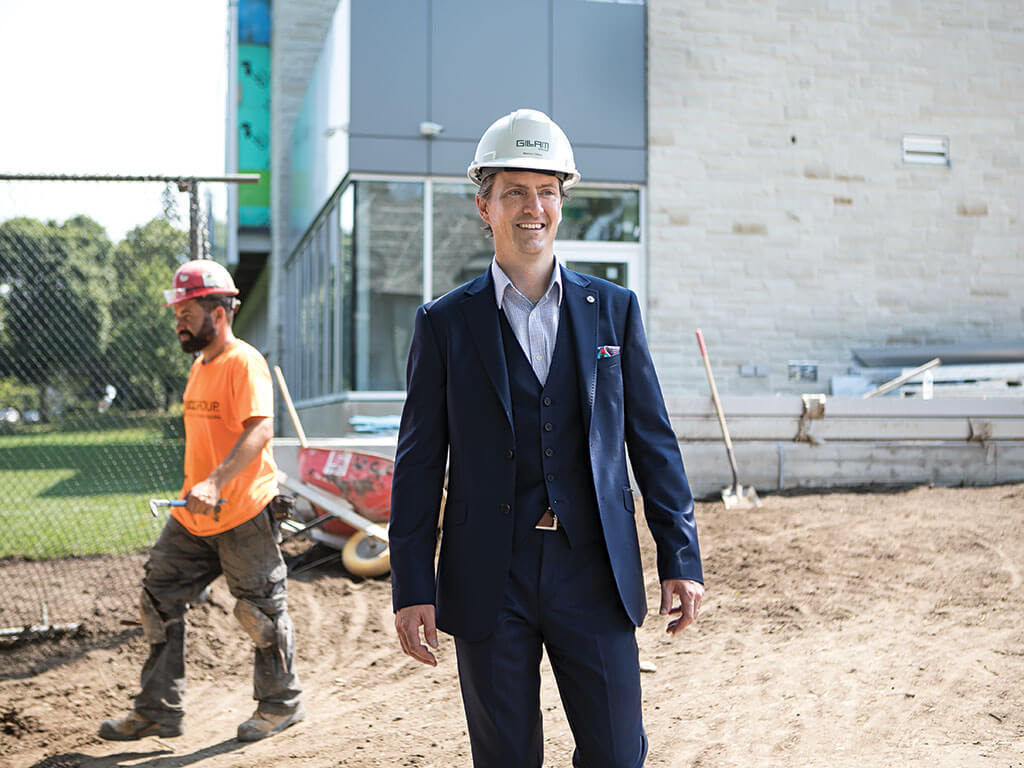
“I look at the business not as a sprint but a marathon”
Gillam Group has carved out a niche in the market between local firms that do smaller residential or commercial projects and the highly integrated companies like PCL, Eastern, EllisDon and Hatch. Marcus Gillam, the company’s CEO, grew up in the family construction business, but after it was acquired he struck out on his own to service the industry’s underserved middle space.
It’s produced remarkable results, placing Gillam Group at No. 1 on the PROFIT 500 ranking of Canada’s Fastest-Growing Companies. Since 2011, the firm has clocked revenue growth of more than 29,000 per cent—revenues doubled in each of its first three years. In 2016, its employee roster grew from 60 to 85, and the firm now has 30 active projects. While it’s not yet a household name in development circles, the company generated sales in the $50-to-$100-million range last year.
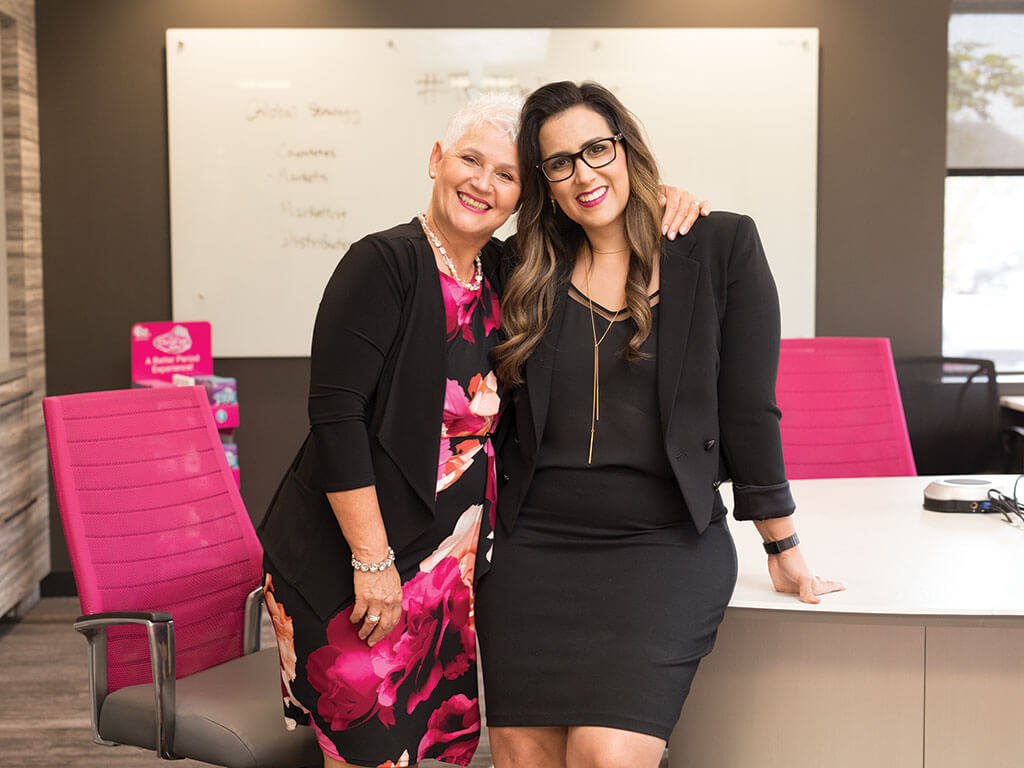
“This product actually changes lives”
Since Diva International launched the DivaCup in 2003 out of Kitchener, Ont., a cult-like following of women have been hailing the virtues of the flow catcher, citing reduced landfill waste and leak-free sleeping.
Founded by CEO Carinne Chambers-Saini and her mother, Francine Chambers, the Canadian business Diva has dramatically grown in the past five years, with revenues up 712 per cent—enough to land the No. 103 spot on the 2017 PROFIT 500 ranking of Canada’s Fastest-Growing Companies. Sold in 21 countries, its annual sales now top $20 million, thanks to the founders’ efforts to take a niche product to the masses.
Related: How the Diva Cup Became the Kleenex of Menstrual Cups
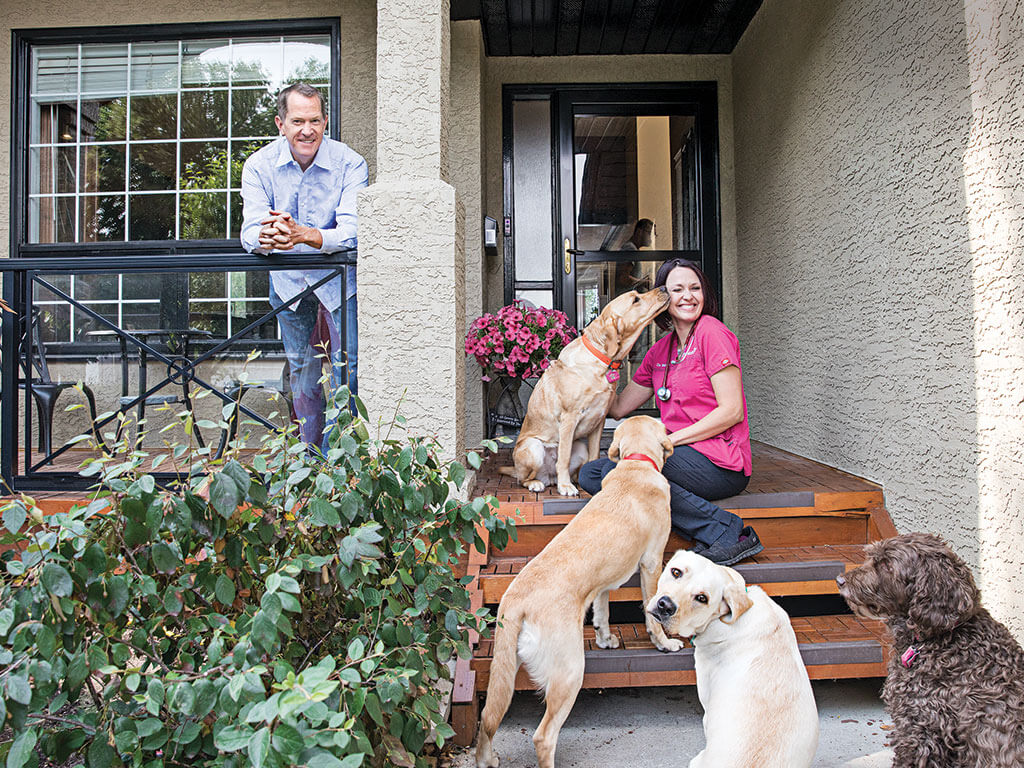
“If something doesn’t elevate the quality of life for everyone involved, we don’t do it”
There’s nothing particularly revolutionary about a mobile vet service; it’s as old as the profession itself. But Greg Habstritt and Dr. Wendy McClelland have built Vets to Go into a business that employs 31 people and serves pet-owners in Calgary and Edmonton.
Sales have spiked 986 per cent over the past five years, earning the Canadian company the No. 72 spot on the 2017 PROFIT 500 ranking of Canada’s Fastest-Growing Companies. In a sector not always known for service, it has amassed a fiercely loyal client base by first delivering a novel offering, then adding complementary offerings reverse-engineered to fix specific pain points.
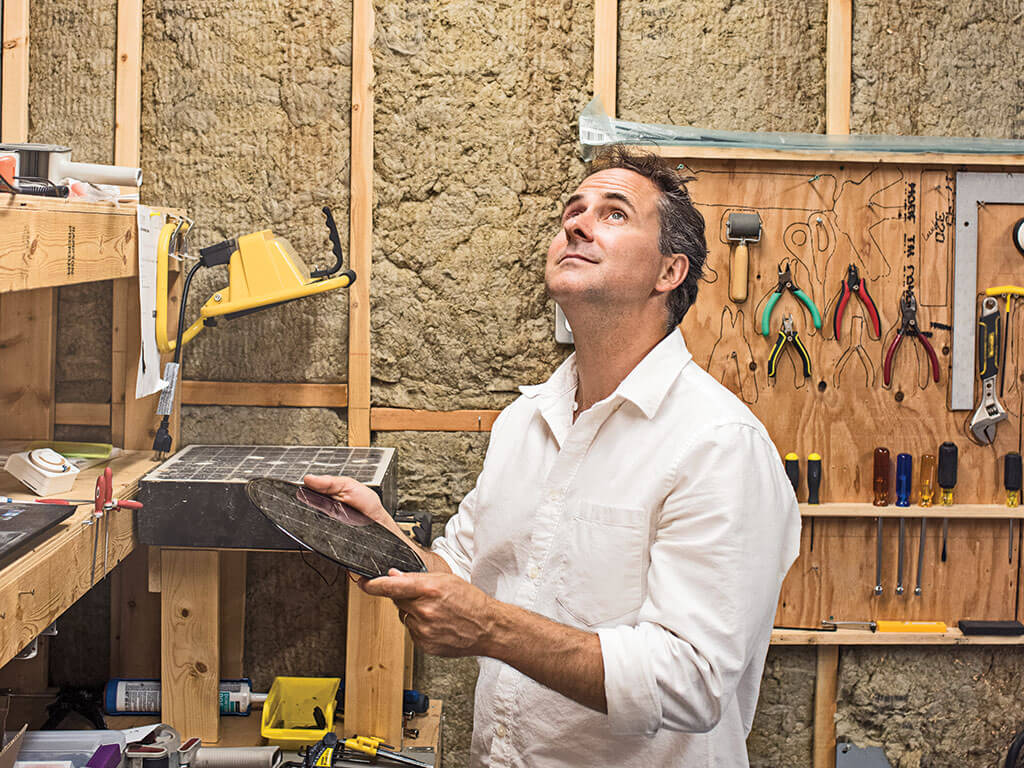
“We started our business with a singular focus”
Sean Bourquin is always figuring out a better way. It’s what drove him to take the leap and start a business—after years of repairing solar lights, he and Justin Taverna felt compelled to build a product that, simply put, required less fixing. “We started our business with a singular focus,” says Bourquin. That pursuit of a better solution has become ingrained in First Light Technologies, and has fuelled its growth; sales increased 341 per cent from 2011 to 2016, earning the firm the No. 190 spot on the 2017 PROFIT 500 ranking of Canada’s Fastest-Growing Companies.

“The phrase ’game changer’ has been bandied around”
Montreal-based biomedical devices company Bioastra Technologies is on the bleeding edge of developing and commercializing practical uses for smart materials. Since launching Bioastra in 2008, top Canadian entrepreneur Sumitra Rajagopalan has grown her business from a one-woman operation to a team of 17 whiz-bang inventor-types; together, they’ve increased sales by 906 per cent in the last five years, landing the business at No. 82 on the 2017 PROFIT 500 ranking of Canada’s Fastest-Growing Companies. In a sector known for long timelines and fervent secrecy, Bioastra has embraced a research and development orthodoxy that allows it to quickly market its inventions.
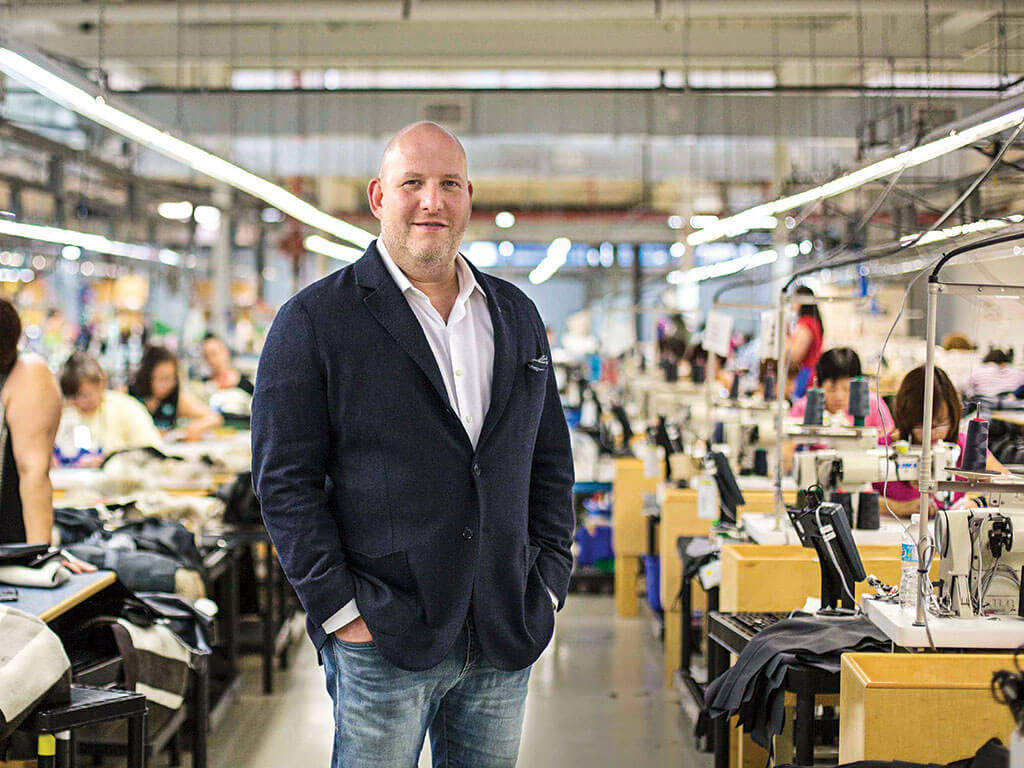
“Brands that make the best products defy trends”
Dani Reiss, CEO of Canada Goose, is well aware that the vast majority of people who wear his company’s products will never visit the North Pole. Just as most people who drive Land Rovers don’t do a lot of off-roading, and most people who wear TAG watches don’t deep-sea dive. Some of Canada Goose’s most enthusiastic markets are in countries that rarely see snowfall. Still, the underlying importance of product leadership, says Reiss, is how his company has remained fad-proof. “From the beginning, we’ve built Canada Goose as the best, warmest, most functional product in the world.”
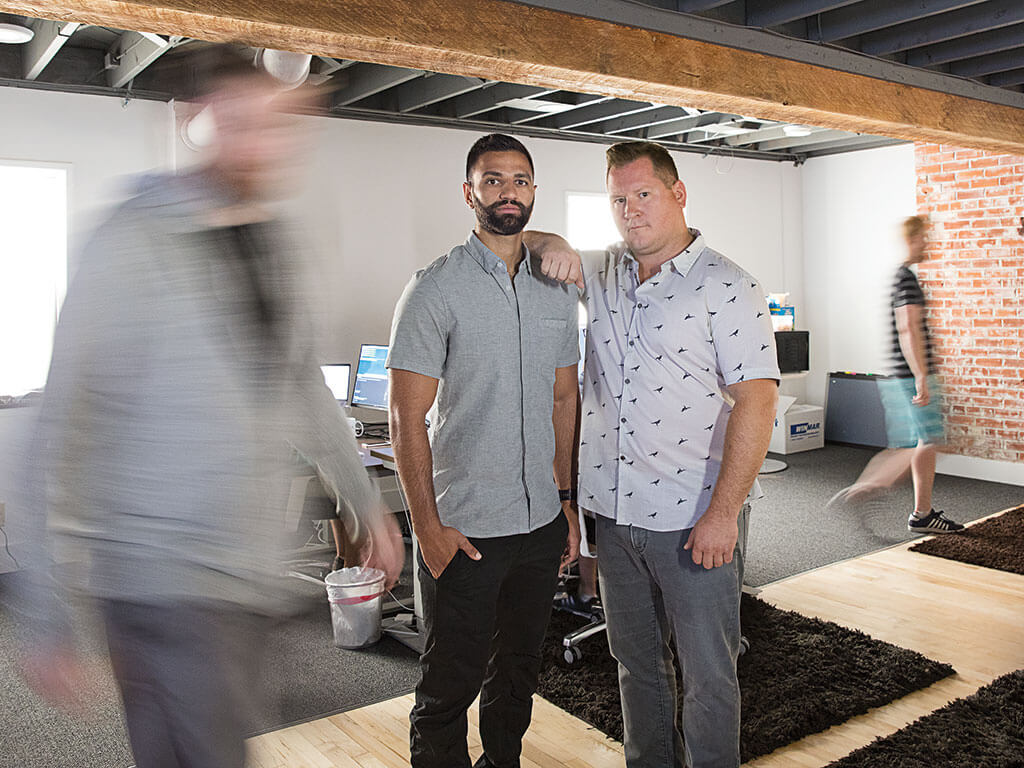
“I wouldn’t ever put a limit on the growth of the company”
Strawhouse is a relatively new player in the multi-billion-dollar industry of persuasion, in which a company develops and executes another company’s marketing strategy in exchange for a commission on each customer or sale that comes from the arrangement. Not yet four years old, Strawhouse has become very good at it in a very short period of time; its sales grew 3,034 per cent in the past two years, to well above $50 million, earning the company the No. 1 spot on the 2017 STARTUP 50 ranking of Canada’s Top New Growth Companies. Situated in picturesque Kelowna, B.C., it’s both off the beaten path and under the radar; there’s a good chance you’ve never heard of it. That’s by design. Founders Naveed Ramadan and Jason Kryski believe the best way to grow its business is by aligning its success with that of its clients—and giving them all of the credit.

“We have to constantly reinvent who we are and how we do things”
After a couple of years working at a car dealership, Cody Green he realized there was a flaw in the prevailing sales paradigm, one that, as a natural problem solver, he couldn’t let go. Would-be car owners were too often choosing their dream vehicle only to find themselves ineligible for the financing needed to pay for it, an outcome that left everyone—dealer, consumer, financial institution—frustrated and inconvenienced. “For the customers who didn’t have perfect credit, that process was backwards and broken,” says Green.
The platform he built to solve the problem has changed the way Canadians buy vehicles. His company, Canada Drives, grew by a staggering 12,686 per cent from 2010 to 2015, to well above $20 million last year, earning it the No. 1 spot on the 2016 PROFIT 500 and the title of Canada’s Fastest-Growing Company for 2016. Its journey to date has been as unconventional as it has been speedy, and it’s only gearing up.
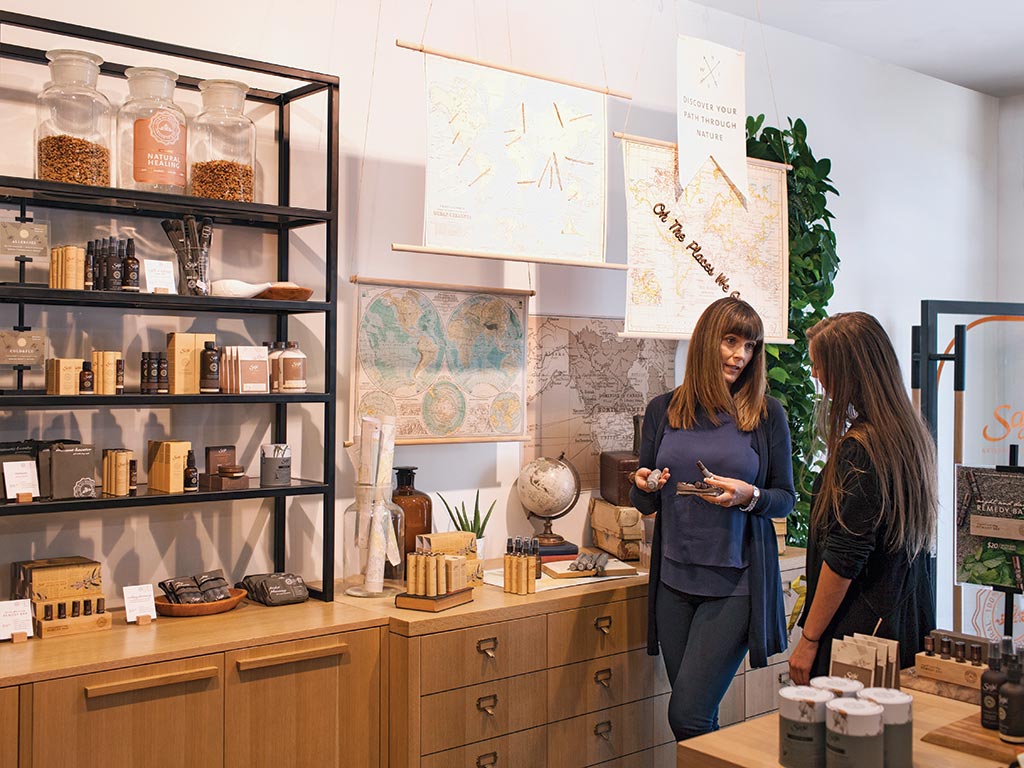
“We make it our first mission to find out how people are doing when they enter our stores”
Founded in 1991 by CEO Kate Ross LeBlanc and her husband, Jean-Pierre (who was driven by health issues to develop his own natural remedies), holistic health products brand Saje Natural Wellness has dramatically expanded its retail presence in the past five years.
And it has, in turn, posted remarkable growth: Revenue rose 1,012 per cent between 2010 and 2015, earning the company the No. 74 spot on the 2016 PROFIT 500 ranking of Canada’s Fastest-Growing Companies. The natural wellness chain now has 40 (and counting) retail locations across the country, and also sells online. Total sales topped $50 million last year. Saje credits its “outrageous” customer service for its success.
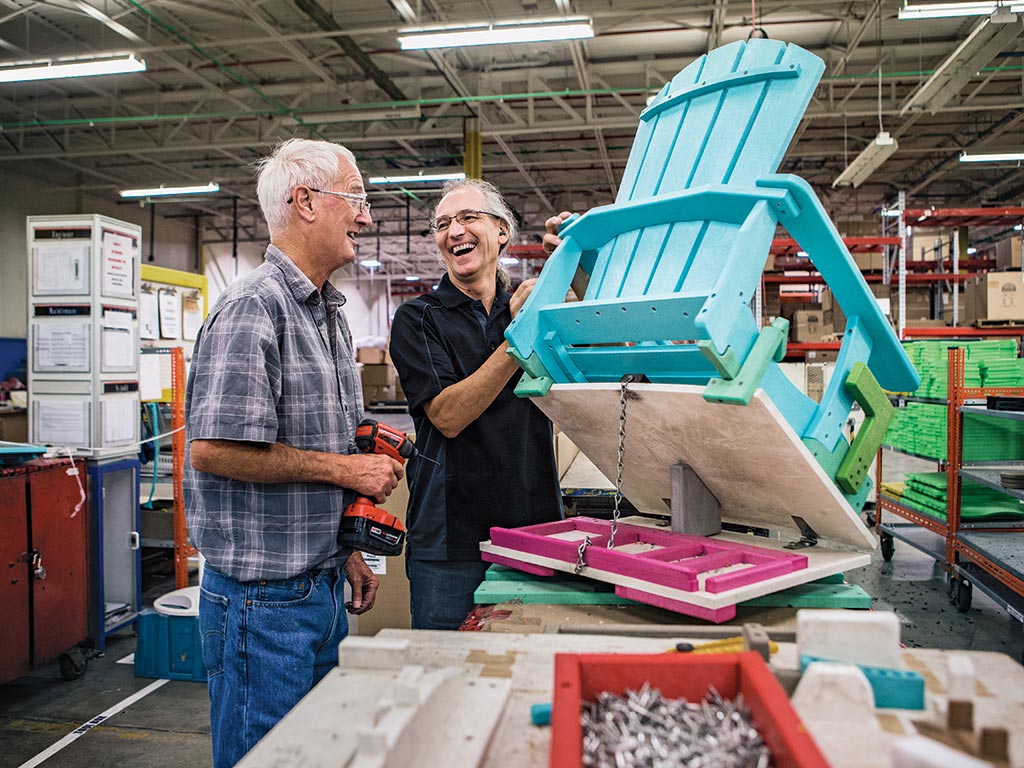
“We have the ability to double the business again”
Since the turn of the decade, C.R. Plastic Products has expanded at a steady clip, posting revenue growth of 181 per cent from 2010 to 2015 and earning the No. 297 spot on the 2016 PROFIT 500 ranking of Canada’s Fastest-Growing Companies. The manufacturer of outdoor furniture from recycled plastic is now Stratford’s largest private employer and last year bought a 300,000-square-foot former automotive factory to dramatically increase its capacity. It’s been an ambitious acceleration for a company that started in co-founder Jamie Bailey’s basement in 1994.
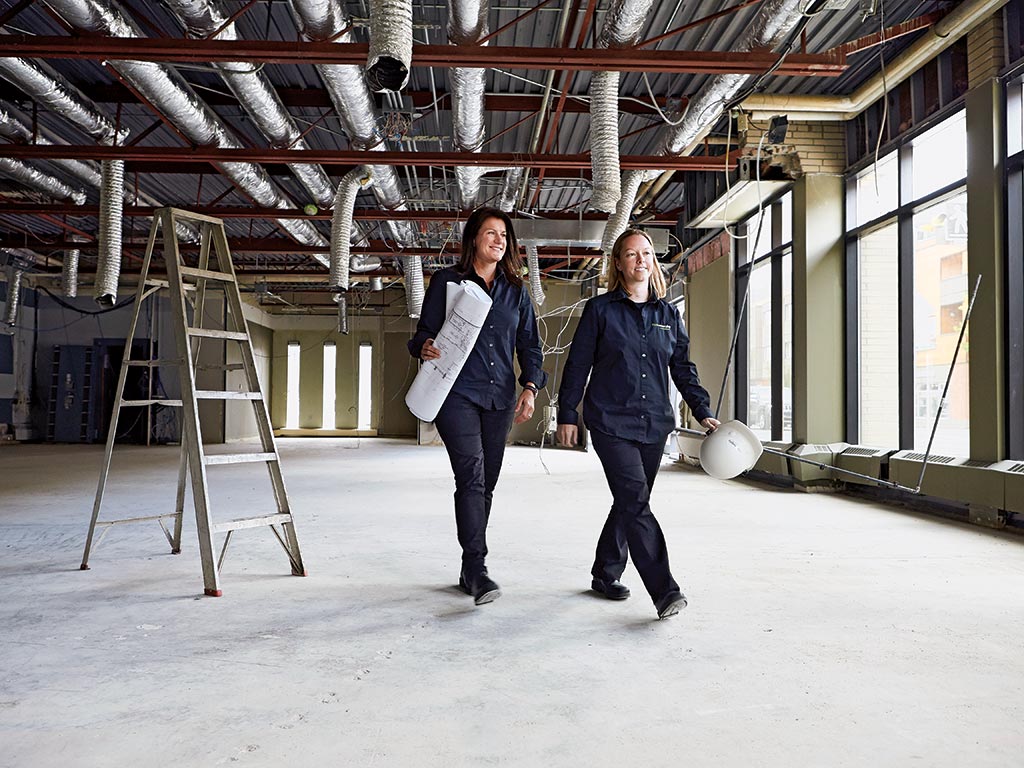
“We work at what we can, one day at a time”
Lara Murphy and Karen Ryan had every reason to believe their new venture would be an indelible and immediate success when they incorporated the company in September 2008. Then the global financial markets fell apart. That arduous launch forged a resilience in Ryan Murphy Construction that has helped it to not only grow—revenue increased 595 per cent from 2010 to 2015, placing the company in the No. 126 position on the 2016 PROFIT 500 ranking of Canada’s Fastest-Growing Companies—but to do so in very volatile conditions.
Even as the recent oil downturn hit and once again set their Calgary base into retreat, the company added customers and increased overall sales. Why? Because its leaders have spent the past eight years building a slump-proof business.
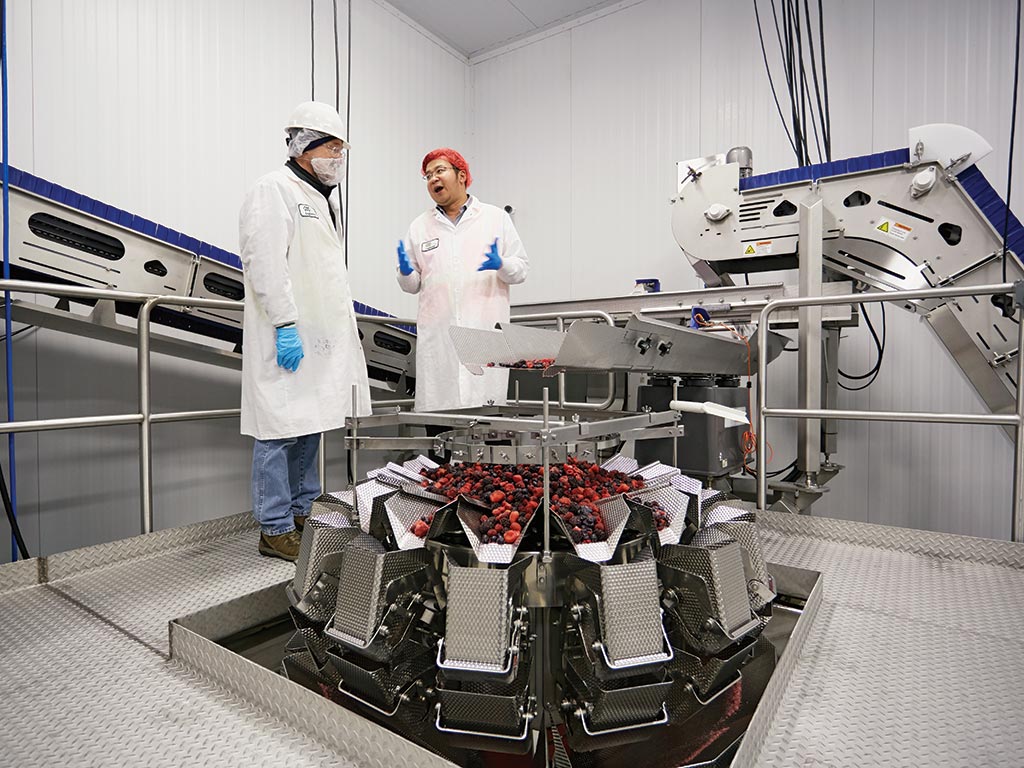
“If you are a good person, good things will happen to you”
Just Quality International grew its revenue by 8,697 per cent from 2010 to 2015, earning it the No. 4 spot on the 2016 PROFIT 500 ranking of Canada’s Fastest-Growing Companies. The firm sources produce from around the world—broccoli from China and Guatemala, papaya from Mexico—and sells it to packaged goods companies, grocery stores and restaurants. JQI also produces a consumer-facing line of frozen vegetable mixes under the name Arctic Harvest. Founder Yupeng Liu attributes the company’s blockbuster growth to his deep knowledge of the industry, and, crucially, his transparent approach with suppliers and customers.
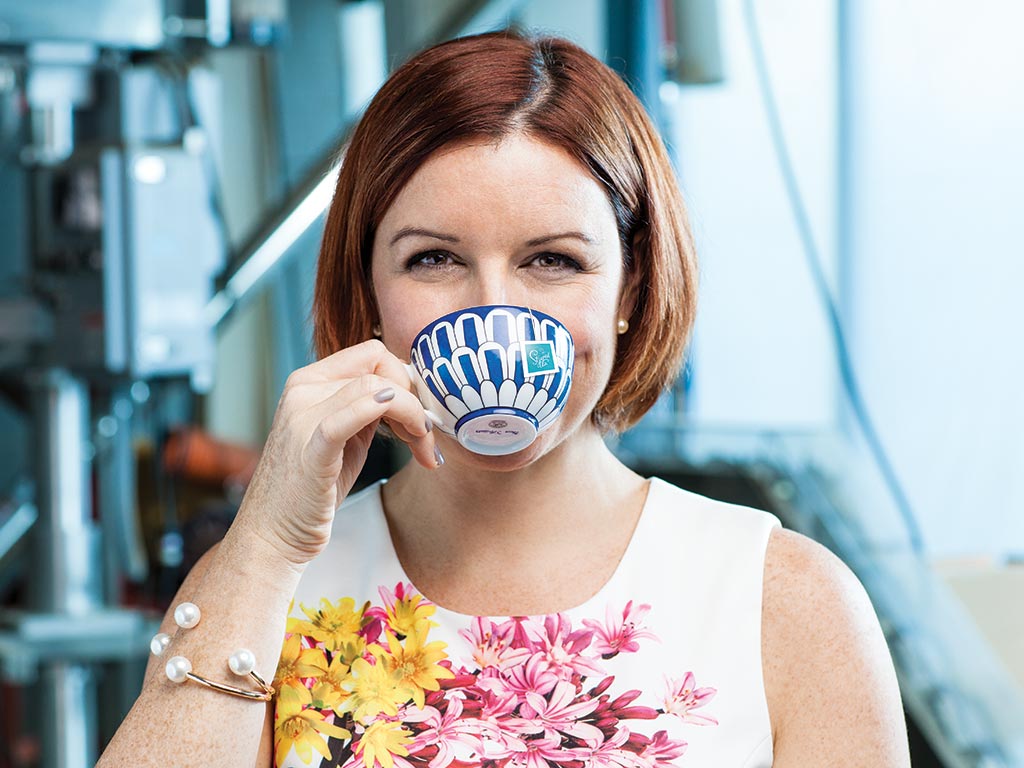
“Deep in my heart, I knew it was going to work”
In the 10 years since Tonia Jahshan started Steeped Tea, she has built a loose-leaf empire with annual sales of more than $20 million (and growing) and 9,000 salespeople peddling tea and accessories across North America—enough to earn her the No. 1 spot on the 2016 W100 ranking of Canada’s Top Female Entrepreneurs. She has learned what it takes to turn a hunch into a massive business: a clear vision, yes, and the conviction to see it through, of course, but also an appetite for risk, a willingness to make changes on the go and nerves of highly tempered steel.
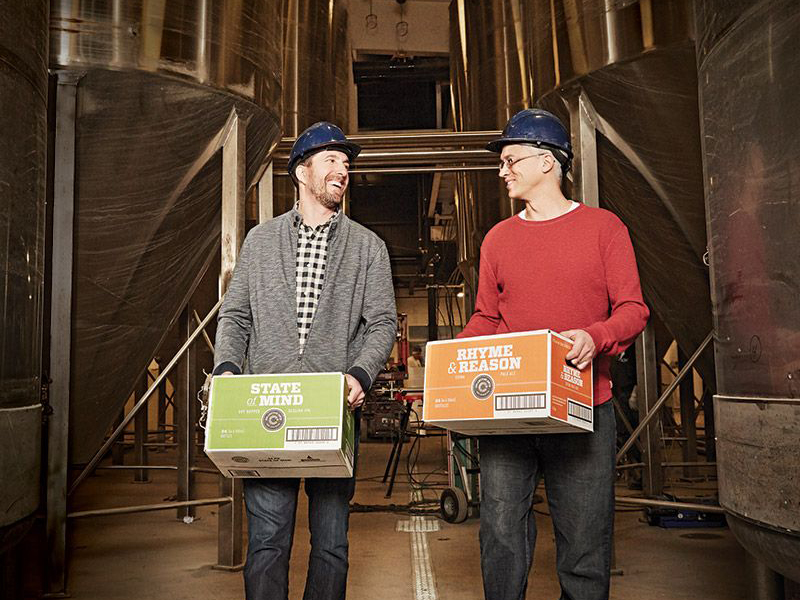
“When you partner up, you cut the risk in half and double the chance of success”
Hamilton-born buddies Matt Johnston and Bob Russell pooled their expertise to create Collective Arts Brewing. Their beers connect drinkers to creative types by featuring an ever-changing array of wall-art-worthy labels designed and illustrated by artists and musicians. The brews’ popularity soon exceeded supply, so Collective Arts partnered with Nickel Brook Brewery to buy an empty space once occupied by former beer giant Lakeport Brewery Company in Hamilton. “We sort of said to ourselves, we can’t succeed as individuals. Building a brewery is an expensive undertaking, and neither of us could afford it, so it only made sense to work together,” says Johnston.
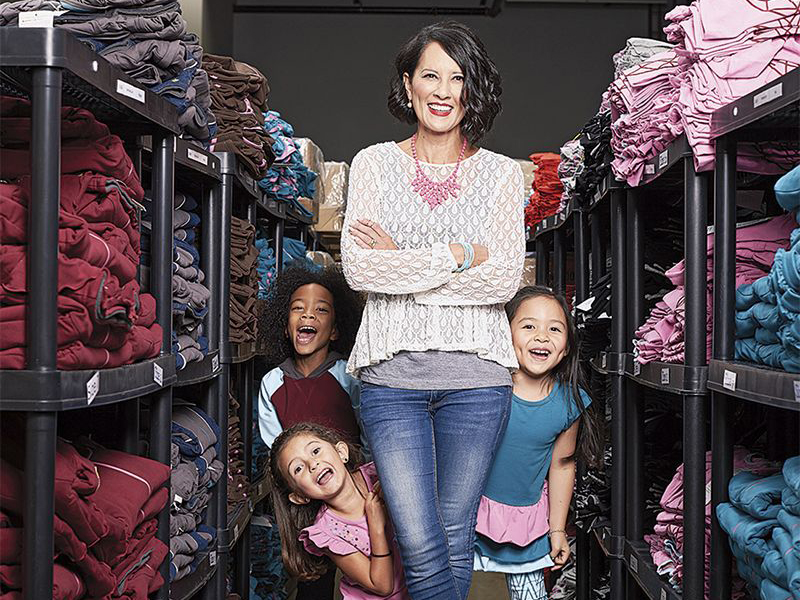
“It was the best decision I’ve ever made”
Traci Costa created Peekaboo Beans in 2006 after noticing the clothes she bought for her vivacious child were hindering her from moving around freely. The buttons and snaps dug into her little waist and limbs, and prevented her from unadulterated play. It gave Costa the idea to construct better clothing for children.
Costa designed her colourful line of kidswear to be versatile. The pants and sleeves have zippers so they can easily come off, and if there’s an accidental spill, parents can just reverse the clothing. Costa initially sold the kidswear to specialty children’s boutiques in Vancouver, where Peekaboo Beans is based, but switched her business model to direct sales after witnessing heaps of retail stores going out of business during the financial crisis. “It was the best decision I’ve ever made,” Costa says.



